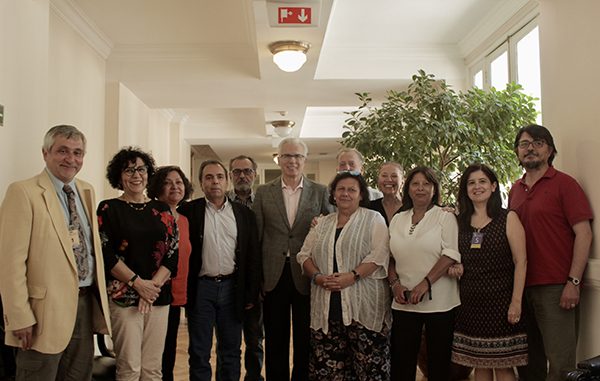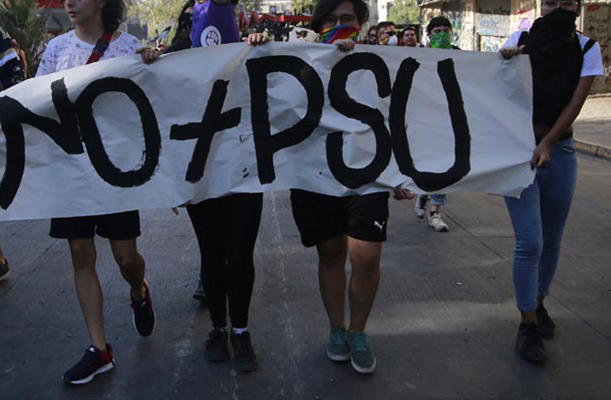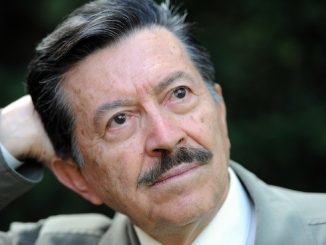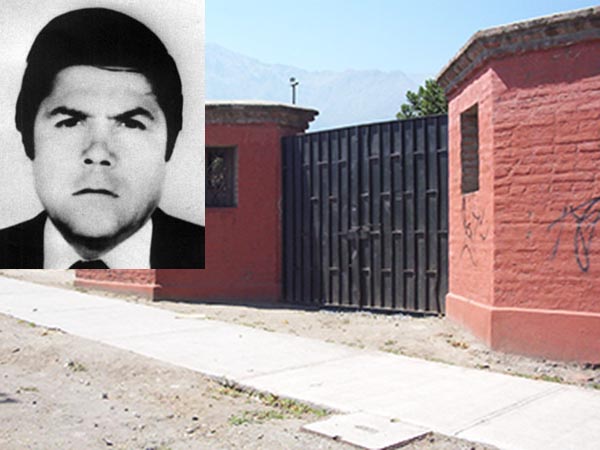
Former Spanish judge Baltazar Garzón, who was visiting Chile to participate in a human rights forum, received various human rights and remembrance organizations at the offices of the former National Congress.
In a frank meeting, which lasted more than two hours, he met with CODEPU, and the Memorial organizations, London 38, Villa Grimaldi and José Domingo Cañas at midday, together with a delegation of former politicians and representatives of the Group of Relatives of the Detained-Disappeared and the Group of Relatives of the Executed.
After making references to the human rights debts that have been dragging on for so many years, the organizations present agreed on a common assessment: the roots of the current human rights violations are found in impunity and precisely in the unresolved issues from the post-dictatorship governments.
The deficiencies in justice, reparations, public policies honoring memory, and human rights training for the Armed Forces, the Police, and the Investigators have allowed human rights to be violated in a massive and systematic way following the general uprising of October 18.
Former Judge Garzón listened attentively to the participants’ interventions, consulted figures and was interested in learning more about their opinions and information. He was especially interested in the consequences of the present use of pellets, tear gas bombs, and water cannons. The serious damage to health, physical integrity and life of these elements. He asked if there were any studies on this subject. CODEPU provided background information on the judicial appeal that is currently before the courts.
He was informed of events concerning the armed forces. For example, that the army had appealed as an institution against a court decision ordering the removal of photographs of Manuel Contreras, the former head of DINA; that monuments of the members of the dictatorship are still kept in Navy buildings; that the Police and the Armed Forces, during the state of emergency, made disproportionate use of force, violated human rights, and did not respect protocols all with the aim of repressing social mobilization in the face of the injustices of a political-economic order that generates injustice and enormous social inequalities.
Then, with figures and detailed information, they spoke of the victims of the social protest that has been going on for more than three months: dead, wounded, and political prisoners of post-October 18 Chile.
The figure of more than 2,000 prisoners astonished him. He was told that there was disproportion in the application of precautionary measures. These are harsher and more demanding for those who protested against the injustices and more benevolent for those who violated human rights. It was suggested to him that there is a decision by state authorities, headed by the Executive, to keep protesters in detention for protesting inequality.
The former judge indicated that he would be concerned about disproportionality in the judicial decisions. That it pained him to see human rights violations, torture and political prisoners in Chile being talked about once again. He noted that it is the State that must guarantee respect for human rights. Therefore the institutions should ensure that investigations are carried out quickly and with respect for due process. He reiterated that what is important is the security of the citizens and the State must ensure this.
He then expressed his concern about the idea that the transition (to democracy) had been built on high levels of impunity. He also expressed his concern that the demand for social improvements and greater protection of economic, social and cultural rights has generated a brutal and disproportionate response from the State and that human rights are being violated.
The meeting was attended by, among others, Alicia Lira, leader of AFEP; Lorena Pizarro of AFDD; Erika Hennings and Magdalena Garcés from Londres 38; Cristián Castillo from Villa Grimaldi; Marta Cisternas from José D. Cañas; Haydee Oberreuter from the Political ex-prisoners and Raúl Flores Castillo, Executive Secretary of CODEPU and the lawyer from the same institution, Hiram Villagra Castro.
Baltazar Garzón, who in 1988 promoted an arrest warrant against former Chilean dictator Augusto Pinoche,t for the death and torture of Spanish citizens during his term of office and for crimes against humanity, is participating, along with others and other international guests, in the International Forum on Human Rights, sponsored by the Senate Human Rights Commission and held in the former National Congress.
CODEPU Team
Translated from the Spanish by the Place de la Dignité Collective



